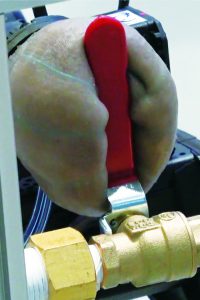A02-3 : Design and implementation of a robot driver with a bifurcation and extension torus mechanism as a base using a super flexible material
Group members
| Leader | Kenjiro Tadakuma (Tohoku University) |
|---|---|
| Member | Hidemitsu Furukawa (Yamagata University) |
Summary
 To construct a robot with a soft body, design and fabrication methods in conventional “hard” robotic mechanisms are not particularly effective. Consequently, new design and implementation methods such as adhesion and self-assembly should be developed and applied.
To construct a robot with a soft body, design and fabrication methods in conventional “hard” robotic mechanisms are not particularly effective. Consequently, new design and implementation methods such as adhesion and self-assembly should be developed and applied.
In this research plan, we aim to establish a design theory and implementation method for an inflatable robot mechanism that can branch and divide freely based on the core technology that a robot freely shapes its structure with a shape memory function using a three-dimensional gel printer. Specifically, by constructing a robot mechanism that mimics the structure and movement of roots that extend from the inside to cause branching not constricted by positions, directions, and numbers based on a telescoping torus structure, we will extract essential elements and create multiple implementation cases.
By repeating the visualization/sharing/systematization of the building process of these actual machines and feedback on the design obtained from actual machine experiments, we will realize case examples and systematization of a “flexible robot mechanisms” design theory that complements conventional hard robot mechanisms.
